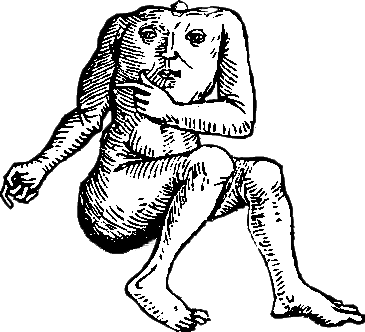On Paolo Virno's A Grammar of the Multitude
[The notion of the multitude], the polar opposite of that of 'people,' is defined by a complex of breaks, landslides, and innovations which I have tried to point out. Let me cite some of them here, in no particular order: the life of the stranger ('bios xenikos') being experienced as an ordinary condition; the prevalence of 'common places' in discourse over 'special' places; the publicness of the intellect as much an apotropaic device as a pillar of social production; activity without end product (that is, virtuosity); the centrality of the principle of individuation; the relation with the possible in as much as it is possible (opportunism); the hypertrophic development of the non-referential aspects of language (idle talk).
The above is from Paolo Virno’s A Grammar of the Multitude (from Semiotext(e)). In many ways this could've been the third part of Poe & the Microbiome, where Edgar Allan Poe’s Eureka explored the beginnings of the universe, hypothesizing its origins from a single point to the becoming of many things, and Stefanie Fishel’s visions of International Relations through the scope of the microbiome (Read: Spinoza’s multitude). Virno writes about how it is essential to understand the difference between “the people” and “the multitude” to truly understand the dynamics at work in our Post-Fordist society.
A Grammar of the Multitude presents an understanding of the society, the functioning of our human-made institutions and how they relate with one another and humanity … but to what end if not to make a world that is more fully able to partake in the critical pleasures and beauty of art?
... language is pre-individual; it is the historical-natural language shared by all speakers of a certain community. Language belongs to everybody and to nobody. Also in the case of language, there is not an individual 'I' but a 'one': 'one' speaks. The use of the spoken word is, at first, something 'inter-psychic,' social, public. A 'private language' does not exist—in any individual case, and even less in the case of an infant. In this respect one comprehends the full extent of the concept of 'public intellect' or 'general intellect.' Language, however, unlike sensory perception, is a pre-individual sphere within which is rooted the process of individuation. The ontogenesis, that is, the developmental phases of the individual human being, consists in fact of the passage from language as public or inter-psychic experience to language as singularizing and intra-psychic experience. This process, in my opinion, takes place when the child understands the act of 'parole' does not exclusively depend on the determined 'langue' (which in many respects resembles an amniotic fluid or an anonymous zoological environment): rather, it stands in relation also to a generic 'faculty' for speaking, to an indeterminate 'capacity' for saying things (which is never resolved in one historical-natural language or another). The progressive clarification of the relation between 'faculty' (or capacity) for speaking and the particular act of 'parole': this is what enables us to surpass the pre-individual character of historical-natural language, pressing for the individuation of the speaker. In fact, while language belongs to everybody and to nobody, the passage from the pure and simple ability to say something to particular contingent utterance determines the space of an individual's notion of 'my own.'
Said another way, as it pertains more specifically to the arts, we might look to Harold Bloom’s The Western Canon:
Literature is not merely language; it is also the will to figuration, the motive for metaphor that Nietzsche once defined as the desire to be different, the desire to be elsewhere. This partly means to be different from oneself, but primarily, I think, to be different from the metaphors and images of the contingent works that are one’s heritage: the desire to write greatly is the desire to be elsewhere, in a time and place of one’s own, in an originality that must compound with inheritance, with the anxiety of influence.
Maybe there is a logical leap here, but I cannot help but see the connections between Poe & the Microbiome and Paolo Virno and Rhapsody in Letters with the conversation it enters into in its unwieldy descent into the creative mind and the process of composing a novel: from the initial spark (that first idea, image, feeling) that drives the project, to the struggles against and conversations with its influences and characters, through to the final product found in readers’ hands ... but I might be partial.
Instead allow me to leave you with parole in human form with Shakespeare’s Parolles (from All’s Well That Ends Well via Jorge Luis Borges + the Paris Review + The New York Review of Books): “Captain I’ll be no more / But I will eat and drink and sleep as soft / As captain shall. Simply the thing I am / Shall make me live.”
A Grammar of the Mulititude
translated by Isabella Bertoletti, James Cascaito, and Andrea Casson
Semiotext(e)
ISBN: 9781584350217
120 pages

